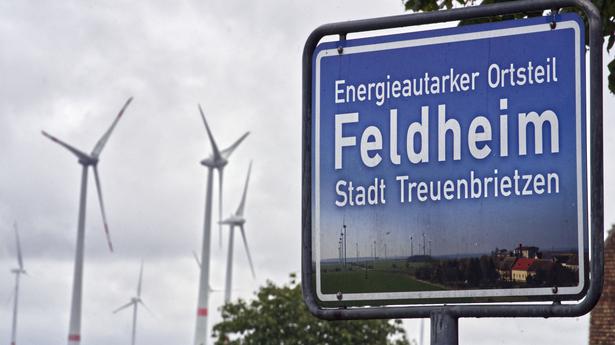
In one tiny German town, nobody worries about energy bills
The Hindu
While most Europeans are watching their energy bills soar as the war in Ukraine drives up the price of natural gas, oil and electricity, the tiny German town of Feldheim has been energy self-sufficient for a decade
Europeans are opening their energy bills with trepidation these days, bracing for hefty price hikes as utility companies pass on the surging cost of natural gas, oil and electricity tied to Russia's war in Ukraine. Many are trying to conserve by turning down the heat and shutting off lights this winter.
Not so the people of Feldheim, population 130.
Located about an hour and a half south of Berlin, this modest but well-kept village has been energy self-sufficient for more than a decade.
A bold experiment launched in the mid-1990s saw Feldheim erect a handful of wind turbines to provide electricity to the village. Then it built a local grid, solar panels, battery storage and more turbines. A biogas plant put up to keep piglets warm was expanded, providing extra income to the farmers' cooperative, which pumps hot water through a village-wide central heating system. A hydrogen production facility is also under construction.
Now, 55 wind turbines can be seen but not heard on the sloping farmlands around Feldheim and residents enjoy some of the cheapest electricity and natural gas rates in Germany.
“They can all sleep well at night," says Kathleen Thompson, who works for a local educational organization, the New Energies Forum. "They’ve got no concerns because the prices are not going to change, not in the immediate future anyway.”
Feldheim's hands-on approach to producing its own eco-friendly energy draws thousands of visitors from around the world each year and contrasts with the way Germany as a whole still relies on fossil fuel imports for much of its needs.

Andhra Pradesh CM Chandrababu Naidu inaugurates CNG, PNG projects in Rayalaseema region. Andhra Pradesh has the unique distinction of being the second largest producer of natural gas in India, thanks to the Krishna-Godavari (KG) Basin, he says, adding the State will lead the way towards net-zero economy.










